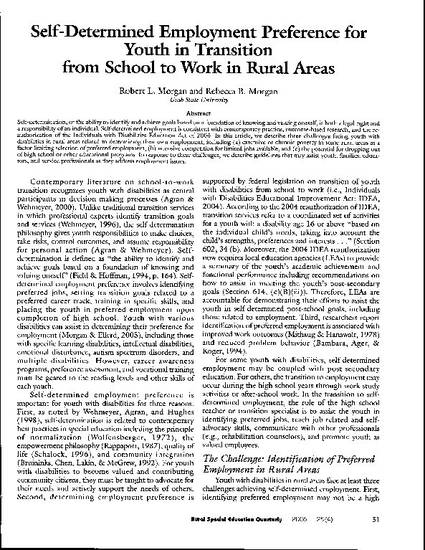
Self-determination, or the ability to identify and achieve goals based on a foundation of knowing and valuing oneself, is both a legal right and a responsibility of an individual. Self-determined employment is consistent with contemporary practice, outcome-based research, and the reauthorization of the Individuals with Disabilities Education Act of 2004. In this article, we describe three challenges facing youth with disabilities in rural areas related to determining their own employment, including (a) extensive or chronic poverty in some rural areas as a factor limiting selection of preferred employment, (b) intensive competition for limited jobs available, and (c) the potential for dropping out of high school or other educational programs. In response to these challenges, we describe guidelines that may assist youth, families, educators, and service professionals as they address employment issues.

Originally published by the American Council on Rural Special Education.